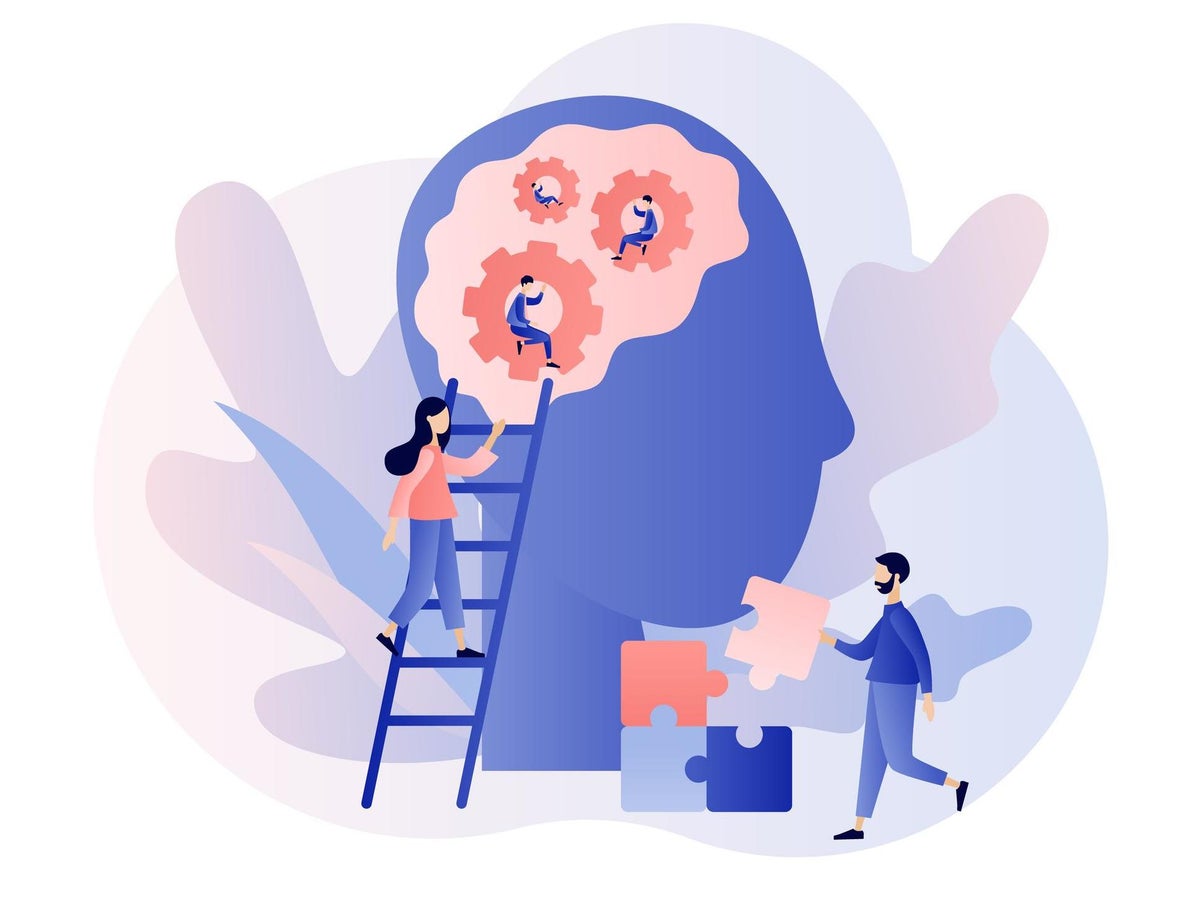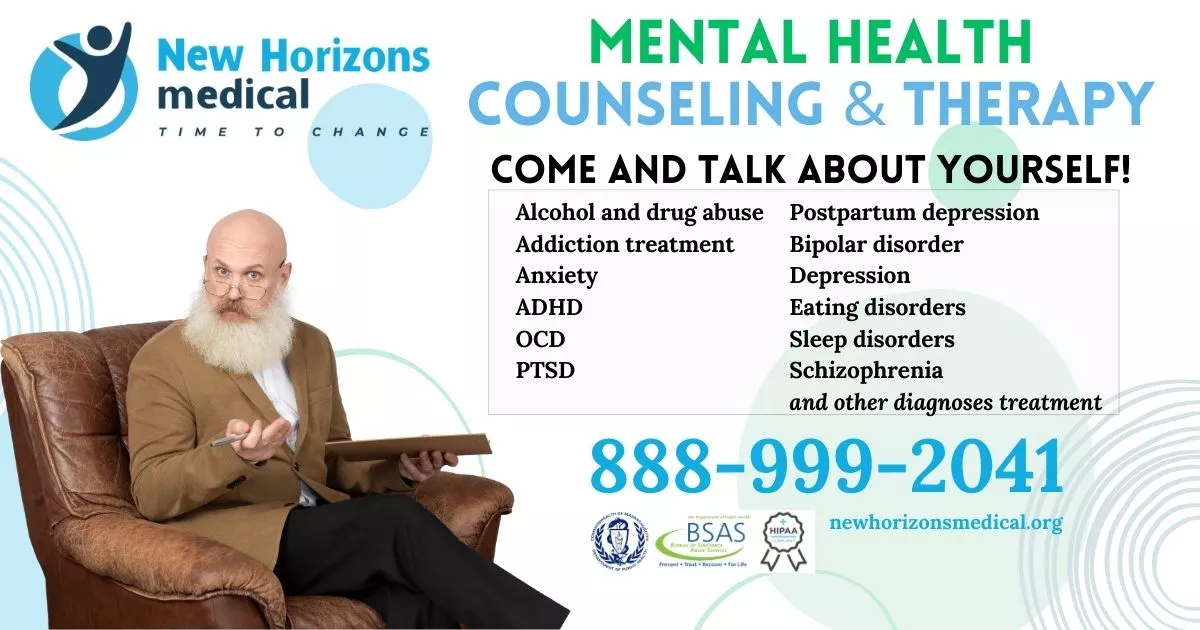Online vs. In-Person Mental Health Resources: How to Choose
Wiki Article
Opening the Secrets of Mental Health And Wellness: An Introduction of Therapy and Therapy Options
Mental wellness is a complex and crucial element of total well-being. Countless counseling and treatment alternatives exist to deal with different psychological challenges. Each approach uses one-of-a-kind advantages and approaches customized to private needs. Understanding these alternatives is necessary for any individual looking for to boost their mental health and wellness. Couples Therapy. What factors should one consider when exploring these opportunities? The answer might disclose a path to a healthier emotional stateRecognizing Mental Wellness and Its Relevance
Psychological wellness encompasses the psychological, emotional, and social wellness of people, considerably affecting just how they believe, feel, and act. Its significance can not be overstated, as it influences every element of life, including relationships, job performance, and total lifestyle. People with good psychological health and wellness have a tendency to deal with tension better, keep much healthier relationships, and make informed choices. On the other hand, poor mental wellness can bring about emotional distress, impaired functioning, and numerous mental illness, which may require specialist treatment. Understanding psychological health is necessary for identifying the indications of distress and the need for assistance. Recognition likewise promotes compassion and lowers preconception, urging people to seek help when needed. By prioritizing mental health and wellness, communities can promote environments that sustain emotional health, ultimately resulting in much healthier, much more durable people. This foundation functions as a crucial step towards reliable mental wellness counseling and therapy choices.
Kinds Of Counseling Methods
Therapy strategies vary commonly, each customized to meet the unique needs of individuals seeking support. Among one of the most typical kinds are cognitive-behavioral treatment (CBT), which concentrates on determining and changing adverse thought patterns, and person-centered treatment, which emphasizes empathy and approval. Psychodynamic treatment checks out subconscious procedures and past experiences to recognize present habits, while solution-focused brief therapy intends to identify services instead of explore problems.Additionally, family members therapy addresses relational dynamics and communication within households, cultivating healthier communications. Team counseling provides a common room for individuals to share experiences and sustain each other. Other techniques consist of existential therapy, which encourages individuals to discover significance and function, and art or music treatment, which makes use of innovative expression as a restorative tool. Each strategy offers distinctive strategies and approaches, enabling clients to find the most suitable approach for their individual development and recovery journeys.Discovering Different Treatment Techniques
In the domain of mental health therapy, different therapy techniques supply distinct techniques to treatment. Cognitive Behavior modification highlights the link in between behaviors and ideas, while Psychodynamic Treatment explores unconscious impacts on emotional health. Additionally, Mindfulness-Based Strategies promote present-moment recognition as a way to boost emotional regulation and overall mental health.Cognitive Behavior Modification
Cognitive Behavior Modification (CBT) stands apart as one of the most extensively practiced and investigated methods in mental health therapy. This approach concentrates on the interconnection in between feelings, habits, and thoughts, emphasizing that modifying negative thought patterns can bring about improved emotional well-being and behavior changes. CBT is structured, usually involving a minimal number of sessions, and aims to gear up people with practical skills to handle their signs. It works for a selection of conditions, including anxiety disorders, depression, and post-traumatic anxiety problem. By utilizing techniques such as cognitive restructuring and exposure therapy, CBT cultivates strength and encourages customers to challenge obstacles head-on, making it a valuable choice in the landscape of mental health and wellness treatments.Psychodynamic Treatment Methods
Psychodynamic therapy methods provide a deep exploration of the unconscious mind and its impact on habits and psychological wellness. Rooted in Freudian theory, these techniques stress the value of early youth experiences and subconscious conflicts. Via methods such as free association, desire analysis, and transference, people obtain insight right into their feelings and thoughts, promoting self-awareness and understanding. This healing modality urges customers to discover repressed emotions and unresolved issues, which can be critical in dealing with existing mental challenges. By examining the interaction between existing behaviors and past experiences, psychodynamic therapy intends to advertise psychological healing and personal development. Ultimately, it supplies a framework for individuals to discover complicated inner characteristics that influence their psychological health.
Mindfulness-Based Methods
While typical treatments commonly concentrate on past experiences, mindfulness-based strategies prioritize present-moment understanding as a pathway to emotional well-being. These methods, including mindfulness-based cognitive treatment (MBCT) and mindfulness-based tension decrease (MBSR), motivate people to engage fully with their thoughts and feelings without judgment. Professionals learn to observe their psychological states, fostering a greater understanding of psychological triggers and reactions. This method not only alleviates symptoms of anxiety and anxiety but also boosts general mental resilience. By incorporating mindfulness exercises, such as meditation and deep breathing, clients grow a feeling of peace see this site and clarity. Inevitably, mindfulness-based methods encourage individuals to navigate life's obstacles with raised recognition and acceptance, promoting a healthier partnership with their feelings and ideas.The Function of a Therapist or Therapist
An experienced therapist or counselor plays a crucial duty in sustaining individuals through their psychological health trips. They supply a safe, non-judgmental area where customers can express their sensations and ideas honestly. Couples Therapy. By using numerous restorative techniques tailored to every individual's demands, specialists assist clients check out underlying problems that might add to their mental wellness challenges.Therapists provide support and devices to handle anxiety, anxiousness, depression, and other psychological difficulties. Their training equips them to acknowledge patterns in habits and believed processes, helping with understandings that lead to personal development. They likewise foster a strong healing alliance, which is important for successful outcomes.Moreover, therapists stay dedicated to discretion and moral standards, making sure a relying on setting. Inevitably, the function of a therapist or counselor is to empower individuals, motivating them to develop resilience and healthier coping approaches while guiding through life's complexitiesExactly how to Pick the Right Therapy or Therapy Alternative
Choosing the best counseling or treatment choice begins with assessing private demands. It is vital to understand personal difficulties and objectives prior to checking out numerous therapy styles. This fundamental step can significantly influence the effectiveness of the chosen approach.Evaluate Your Needs

How can individuals efficiently analyze their psychological health and wellness requires when examining therapy or treatment choices? They should show on their psychological state and identify certain issues, such as anxiousness, relationship, or anxiety challenges. Journaling can be a useful tool for tracking thoughts and sensations with time. Furthermore, people might profit from looking for feedback from trusted good friends or member of the family pertaining to viewed changes in behavior or mood. It is additionally valuable to evaluate personal objectives for therapy, such as improving coping skills or obtaining insight into personal patterns. Finally, investigating different counseling modalities and their viability for details needs can aid in making an informed choice. Inevitably, self-awareness plays a pivotal role in selecting the best course for psychological health and wellness support.
Explore Treatment Designs
While passing through the diverse landscape of therapy alternatives, individuals ought to consider numerous designs of counseling to find the most effective suitable for their distinct needs. Cognitive Behavior Therapy (CBT) concentrates on transforming adverse thought patterns, while Psychodynamic Therapy explores past experiences and subconscious procedures. Humanistic techniques emphasize individual growth and self-actualization, fostering an encouraging setting. Additionally, mindfulness-based treatments grow present-moment awareness, assisting their website emotional law. For those looking for framework, Solution-Focused Short Treatment targets specific goals and services. Group treatment gives a common setup for shared experiences and assistance. Eventually, people ought to assess their choices, comfort levels, and details challenges, ensuring they pick a healing style that resonates with their individual trip toward mental wellness.Conquering Obstacles to Seeking Help

The Benefits of Counseling and Therapy for Mental Wellness
Seeking assistance for mental health and wellness obstacles can bring about considerable enhancements in general well-being. Therapy and treatment give individuals with a risk-free area to discover their feelings and ideas, promoting self-awareness and individual development. These professional services gear up customers with dealing strategies and problem-solving skills tailored to their one-of-a-kind situations.Moreover, treatment can lower signs and symptoms of stress and anxiety, anxiety, and other psychological health disorders, enhancing emotional resilience. Routine sessions advertise liability and urge individuals to establish and achieve individual goals. Via different therapeutic modalities, such as cognitive-behavioral treatment or mindfulness methods, clients find out to reframe negative ideas and establish much healthier behaviors.Additionally, the therapeutic partnership itself can be a resource of support, helping to deal with isolation and isolation. On the whole, engaging in counseling and treatment is a positive step towards achieving psychological health, enabling individuals to lead more meeting lives.Regularly Asked Concerns
The Length Of Time Does Counseling or Treatment Typically Last?
The duration of counseling or therapy differs substantially, typically lasting from a couple of sessions to a number of months or years. Aspects influencing this include the person's particular requirements, the sort of therapy, and healing objectives.What Should I Expect Throughout My Initial Session?
Throughout the first session, individuals can anticipate an intro, conversation of issues, and the specialist's strategy. They might complete evaluations and establish objectives, fostering a risk-free environment for open interaction and building relationship.
Exist Any Threats Related To Treatment?
Therapy can entail risks, such as emotional pain, vulnerability, or confronting painful memories. While these difficulties might occur, they can also lead to personal growth and recovery, making the healing process facility yet possibly fulfilling.Just How Can I Inform if My Therapist Is a Good Fit?
Figuring out if a specialist is a good fit entails examining convenience, communication design, and restorative approach. Positive rapport and progression in the direction of objectives are signs of an ideal suit, important for effective psychological wellness assistance.Will My Insurance Coverage Cover Therapy or Therapy Sessions?
Establishing insurance coverage for counseling or treatment sessions often calls for calling the insurance policy service provider straight. Policies differ considerably, so people should confirm advantages, co-pays, and any type of needed pre-approvals before pursuing therapy solutions. Among the most typical types are cognitive-behavioral therapy (CBT), which focuses on recognizing and changing adverse thought patterns, and person-centered therapy, which stresses compassion and approval. Psychodynamic treatment explores previous experiences and subconscious procedures to comprehend current actions, while solution-focused quick therapy intends to identify remedies instead than investigate problems.Additionally, family treatment addresses relational characteristics and communication within families, cultivating healthier communications. Various other techniques consist of existential treatment, which urges individuals to find significance and function, and art or songs treatment, which uses creative expression as a healing device. Cognitive Behavior Treatment highlights the link in between actions and ideas, while Psychodynamic Therapy discovers subconscious influences on psychological health. Cognitive Behavior Therapy (CBT) concentrates on transforming adverse thought patterns, while Psychodynamic Therapy checks out past experiences and unconscious processes.Report this wiki page